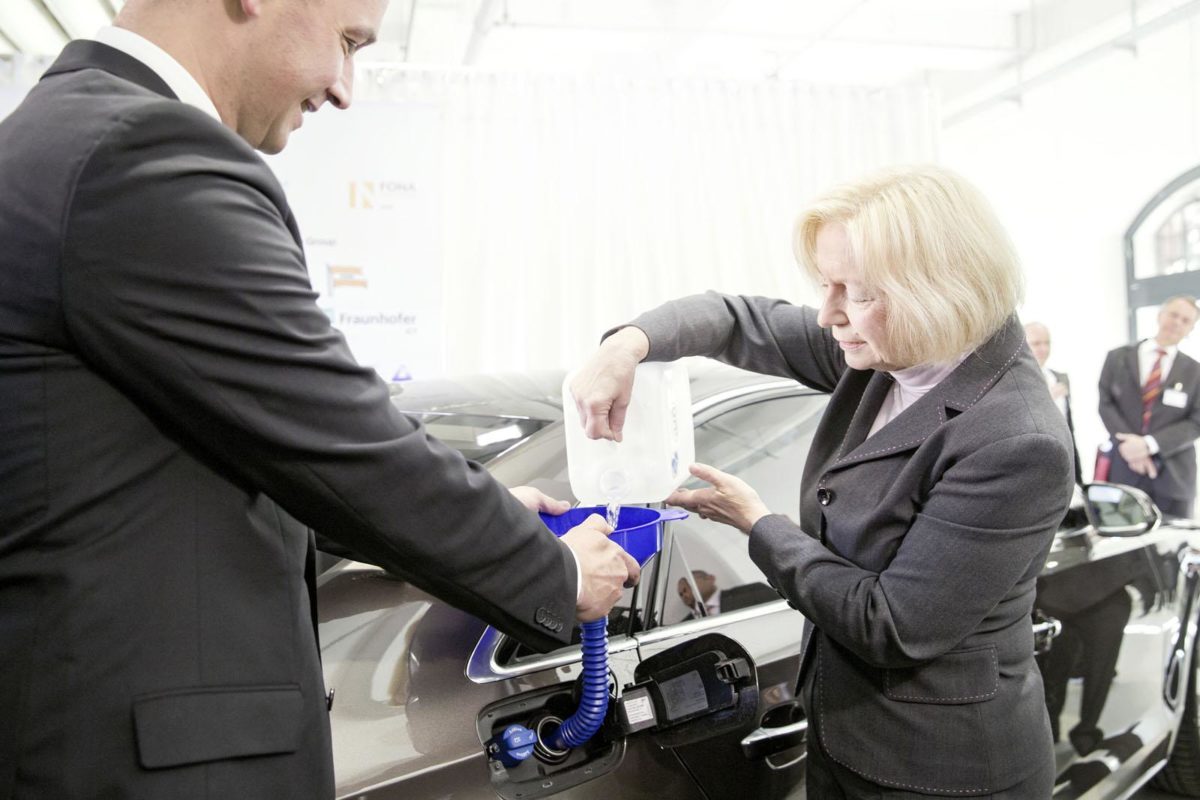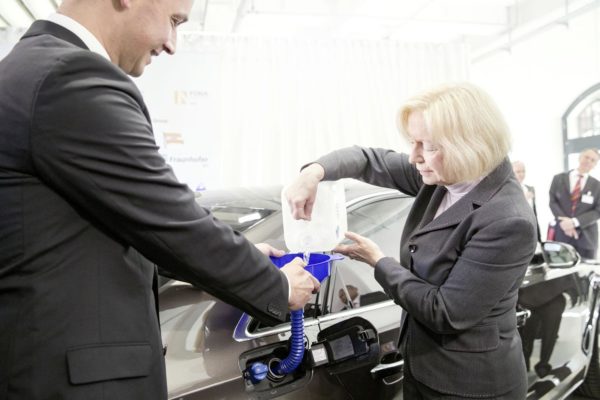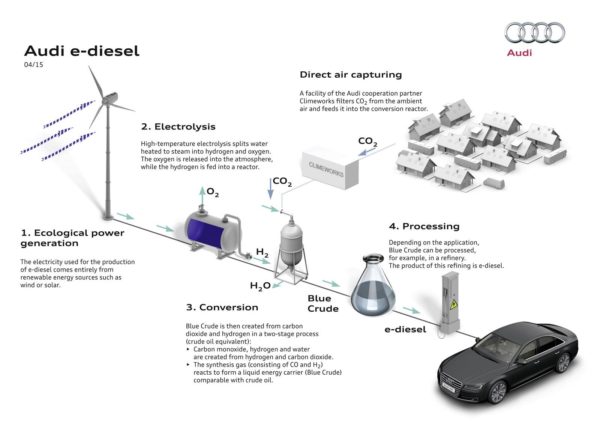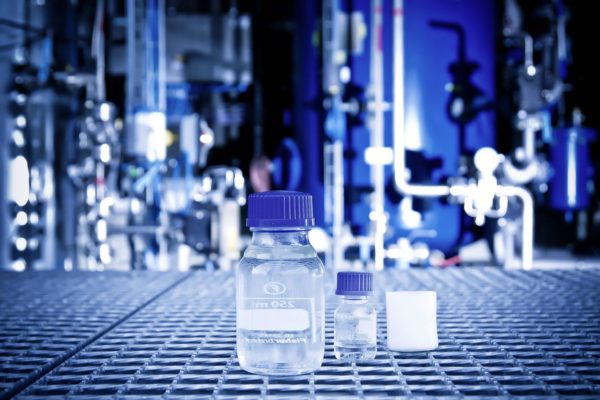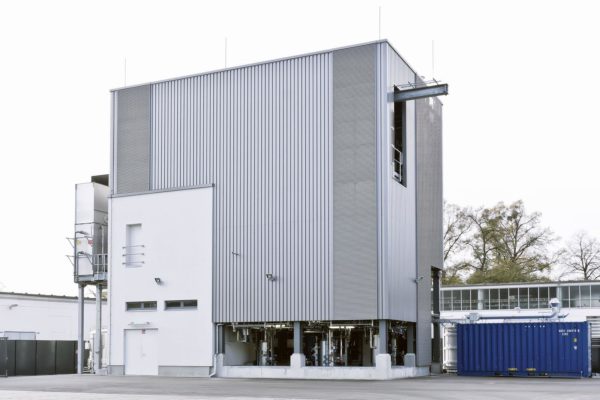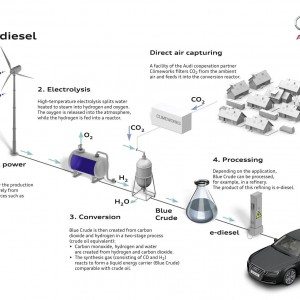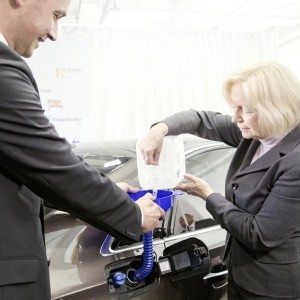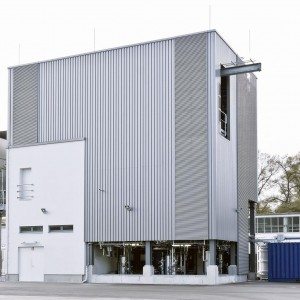Audi has announced the successful production of its first batch of “e-diesel”, a synthetic diesel that is made using CO2, which should eventually make a crucial contribution to climate protection and also marks the efficient use of resources . Concocted at the German manufacturer’s research facility in Dresden, the only raw materials needed for producing e-diesel are water and carbon dioxide. To demonstrate its suitability for everyday use, German Federal Minister of Education and Research Prof. Dr. Johanna Wanka put the first five liters into her official car (above), an Audi A8 3.0 TDI clean diesel quattro, this Tuesday.
Production of Audi e‑diesel involves various steps: First, water heated up to form steam is broken down into hydrogen and oxygen by means of high-temperature electrolysis. This process, involving a temperature in excess of 800 degrees Celsius, is more efficient than conventional techniques because of heat recovery, for example. Another special feature of high-temperature electrolysis is that it can be used dynamically, to stabilize the grid when production of green power peaks.
In two further steps, the hydrogen reacts with the CO2 in synthesis reactors, again under pressure and at high temperature. The reaction product is a liquid made from long‑chain hydrocarbon compounds, known as blue crude. The efficiency of the overall process – from renewable power to liquid hydrocarbon – is very high at around 70 percent. Similarly to a fossil crude oil, blue crude can be refined to yield the end product Audi e‑diesel. This synthetic fuel is free from sulfur and aromatic hydrocarbons, and its high cetane number means it is readily ignitable. As lab tests conducted at Audi have shown, it is suitable for admixing with fossil diesel or, prospectively, for use as a fuel in its own right.
The CO2 used is currently supplied by a biogas facility. In addition, initially a portion of the CO2 needed is extracted from the ambient air by means of direct air capturing, a technology of Audi’s Zurich‑based partner Climeworks. The Dresden plant is set to produce over 3,000 liters of Audi e‑diesel over the coming months.
Source : Audi

